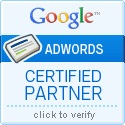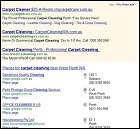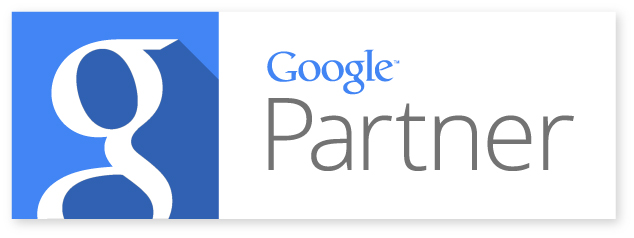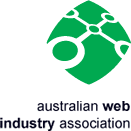 |
With many businesses being disgruntled with SEO results there is an ever-increasing trend (as Google had hoped) towards paying for search positions.
Yes, with pay-per-click advertising you need to continually spend to get a result. However, these 7 key reasons may have you reconsidering your marketing mix to include pay-per-click advertising.
1. Paid Clicks are from Hungry Customers
Common sense suggests that people clicking organically are early in the buying cycle, whereas those clicking on paid ads are more ready to make a purchase. Paid ads often contain special offers, discounts, pricing examples, and are directly targeted towards what the searcher is looking for. E.g. see the compelling offers that appear when ‘carpet cleaning’ is searched on Google – '3 Rooms for $65', '10% off' etc. Compare this to the first 4 organic listings which have minimal marketing appeal.
 |
| Click to Enlarge |
2. Search Engines have Shareholders
Organic results are being bumped down the list in favour of paid ads, in an attempt to maintain share prices of the search engines. Ads can now include a business location and links to other pages within the website (see examples below). As a result, the paid ads are getting clicked on more than ever before because searchers don’t like having to scroll.
 |
 |
| Click to Enlarge | Click to Enlarge |
3. Organic = Watching Grass Grow
It can be frustrating watching and waiting for your website to improve organically. No one knows how high it will reach and how fast it will get there.
Pay-per-click advertising gives immediate visibility. Ads can be shown to a searcher in a specific location for a specific keyword, within as little as 10 minutes. This sure beats sitting around hoping/praying for your website to improve organically.
4. Pay-per-Click Covers 1,000’s of keywords
It is difficult to get a website ranking organically in the top 3 for 100’s of popular keywords without the website having literally hundreds or thousands of pages. Many older websites will rank well under a select few popular keywords but they could be missing out on customers who search for variations of these keywords. Pay-per-click lets you actively pursue all keyword variations, without having to write additional content!
The description used in organic search results will be the meta description of the relevant page, or in some instances, an extract of text from the page. Whilst you can alter the meta description, it isn’t guaranteed that this will be displayed, and any changes that you make won’t be reflected until the search engine re-crawls your website (which could be hours or months – no one knows exactly). By comparison pay-per-click ads can be changed almost instantly and are reflected generally within 10 minutes online.
6. Make use of Landing Pages
1-page websites, also known as ‘Landing Pages’ or ‘Squeeze Pages’, are renowned for having higher conversion rates than full websites. Landing pages work well for businesses whose customers are making a time-sensitive decision (e.g. pest control), the customer can get the same or a similar service elsewhere (e.g. mortgage broking), and credibility can be quickly conveyed in a few key bullet points.
1-Page websites generally don’t rank well organically in competitive areas due to the website having insufficient content. However, pay-per-click advertising can have these pages ranking high in any keyword category, and driving quality targeted traffic that converts into leads. It is not uncommon for a good landing page and pay-per-click campaign to convert 25% of visitors into leads.
These statistics are from a test comparing the conversion rate of a full website (SEO Landing Page) with a 1-Page PPC Landing page –
| Conversion Rate | |
| SEO Landing Page | 15.1% |
| PPC Landing Page | 26.9% |
7. You Control your Rankings
By bidding on keywords you can control your rankings with pay-per-click advertising. Note however that your bid is only one of a number of factors search engines look at when determining how much you pay per click. A good quality landing page with relevant keywords will help keep your click costs to a minimum.
This article provides greater insight into why you should consider running pay-per-click ads even if you are ranking well organically





